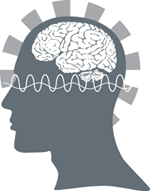Cognitive Rehab

The Cognitive Rehabilitation Program is led by Ritesh Prasad, M.D. who is board certified in Physical Medicine and Rehabilitation and has extensive experience in the treatment of brain injured individuals.
Dr. Prasad works with a team of skilled Psychologist, Speech Language Pathologists, Physical Therapists, Occupational Therapists and Licensed Professional Counselors in achieving patient goals. The Speech Language Pathologists address any diagnosed cognitive impairments. Cognitive retraining activities may include sensory/perceptual function, visuospatial function, attention and concentration, receptive and expressive language, memory and learning tasks, logical analysis tasks, and executive reasoning strategies. Therapies are performed with one on one patient to clinician interaction. The Physical Therapists address any functional deficits resultant to a brain injury, such as balance disturbances, ataxia, gait disturbances, etc., as well as any co-morbid diagnoses such as musculoskeletal cervical injuries. Our behavioral specialists provide counseling to our patients and patients' families, working with each patient individually to address emotional impairments resultant to their head injury, such as depression and awareness issues, as well as family education.
The brain injury program accepts patients on an outpatient basis with mild or mild to moderate head traumas as determined by evaluation from our Psychologist and Medical Director (more severe traumas may be evaluated and accepted on a case by case basis). Like other interdisciplinary cognitive rehabilitation programs, our program focuses on improving patient independence and awareness. When appropriate, the program also emphasizes vocational rehabilitation and return to work .
The following list illustrates typical diagnoses for patients that may be candidates for admission into our program:
- closed head injury
- CVA/stroke
- Minor head trauma with or without loss of consciousness
- Penetrating head injury
- post concussion syndrome
- electric shock
- toxic exposure
- anoxic incident
In most cases, the interdisciplinary cognitive rehabilitation program utilizes the following admission criteria:
- neurological injury or illness that has resulted in a cognitive impairment
- the patient's level of cognitive impairment is not greater than a mild to moderate range as determined by our medical director and treatment team, and patient can be treated appropriately in an outpatient setting
- patient does not present with behavioral impairments that have resulted in suicidal tendencies or injurious behaviors towards others
- The patient's referring physician has noted that patient is medically stable and is not in need of medical support equipment or technologies such as catheters, feeding tubes, etc.
Cognitive Therapy and PABI rehabilitation services are provided through Direct RehabMed and/or East Texas Spine Institute, PA.
